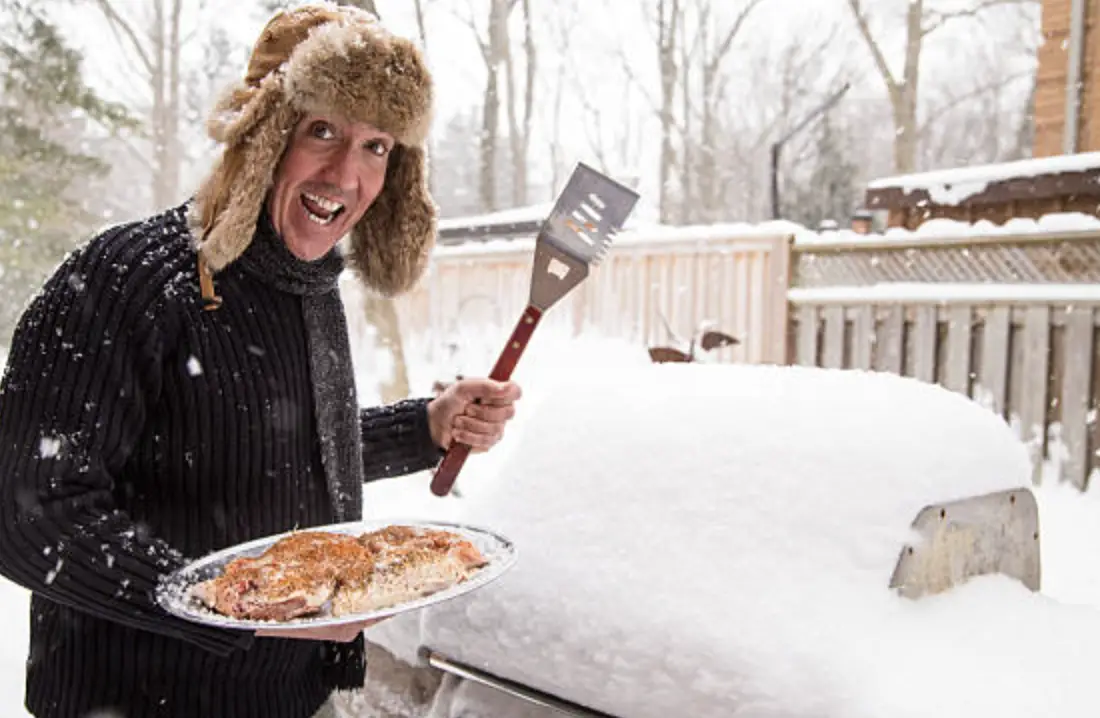As the chill of winter sets in, grilling enthusiasts may wonder if their beloved propane grill can withstand the cold temperatures. The good news is that yes, you can use a propane grill in cold weather with a few adjustments and precautions. In this blog post, we’ll explore the impact of cold weather on propane grills and provide essential tips to ensure a successful and enjoyable grilling experience even in the frostiest conditions.
Understanding the Effects of Cold Weather on Propane Grills
Propane grills operate using a gas tank filled with liquid propane, which is converted into gas vapor and mixed with oxygen to produce the flame. In cold weather, the temperature drop can affect the propane gas inside the tank and the grill’s components, leading to a few potential challenges:
- Lower Gas Pressure: Cold temperatures can cause the propane inside the tank to have a lower vapor pressure, affecting the grill’s ability to maintain a consistent flame.
- Slower Ignition: Cold weather can slow down the ignition process, making it harder to light the grill.
- Longer Preheating Time: The grill may take longer to reach the desired cooking temperature due to the lower gas pressure.
- Ice Buildup: In extreme cold, condensation inside the propane tank can lead to ice buildup, potentially affecting gas flow.
Tips for Grilling in Cold Weather:
- Keep the Propane Tank Warm: If possible, store the propane tank in a warmer location before use. Avoid leaving it outside or in an unheated garage, as this can further decrease the gas pressure. A garage or shed with a moderate temperature is ideal.
- Insulate the Grill: Invest in a grill cover or use aluminum foil to insulate the grill and trap some of the heat. This can help maintain a more consistent cooking temperature.
- Preheat the Grill Longer: To counteract the slower ignition and preheating process, start preheating the grill earlier than usual. This ensures that the cooking surface reaches the desired temperature before placing the food on the grates.
- Keep the Lid Closed: During cooking, minimize lid lifting to retain heat and maintain a consistent cooking environment. Frequent lid openings can cause heat loss and extend cooking times.
- Use Windbreaks: Position your grill in a location shielded from the wind. Wind can significantly impact the grill’s performance, especially in cold weather.
- Monitor Gas Levels: Regularly check the propane tank’s gas level before starting to grill, as colder temperatures may lead to faster consumption of propane.
- Thaw Frozen Food: If grilling frozen food, ensure it is adequately thawed before cooking. Cold food can reduce the grill’s temperature and affect cooking times.
Conclusion
Grilling enthusiasts need not let the cold weather dampen their passion for outdoor cooking. Propane grills can still be used effectively during winter, provided you take some precautions and make a few adjustments. By keeping the propane tank warm, insulating the grill, preheating longer, and being mindful of wind and lid openings, you can enjoy a successful grilling experience in chilly conditions. Embrace the winter season and indulge in delicious grilled dishes that will warm both your heart and your taste buds!
